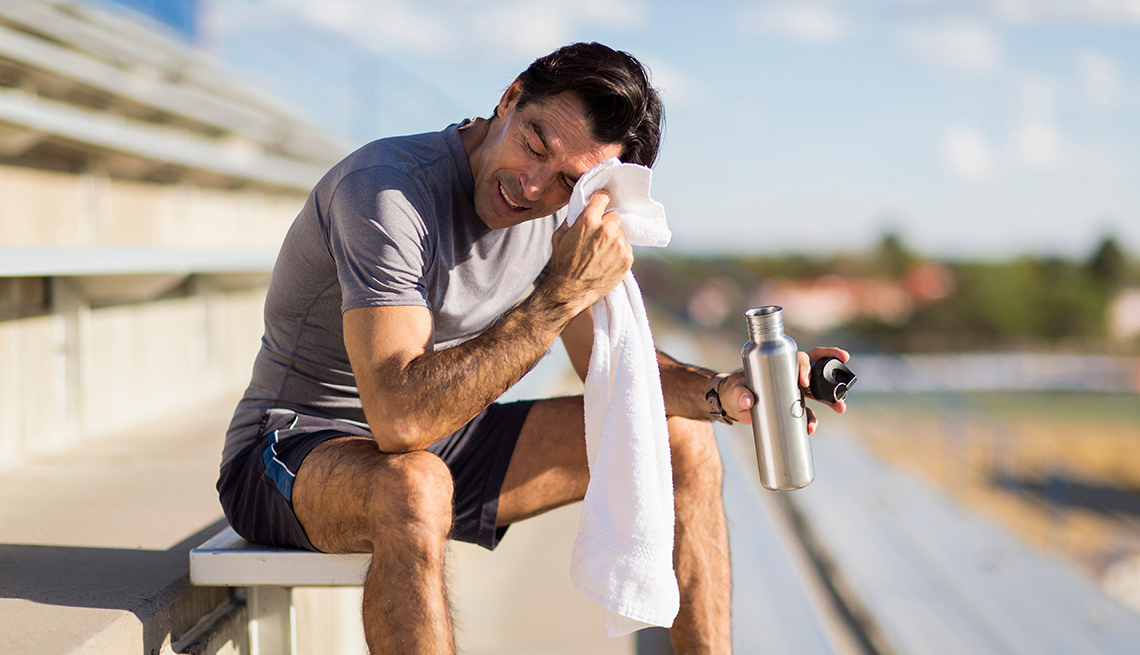

If you have questions or comments about this story, please email (link opens in new window). "The bottom line is to find an activity that you like, and do it religiously," Joyner said. In fact, the new federal guidelines recommend that children ages 3 to 5 should stay active all day and those ages 6 through 17 should get at least one hour of moderate to vigorous physical activity daily. Staying active is important throughout the lifespan, Joyner said, citing evidence that children who engage in regular physical activity have less attention deficit hyperactivity disorder, improved academic performance and other developmental benefits.įor example, in a study by the Centre for Brain Research at The University of Auckland, researchers found that children ages 7 to 13 who were randomly assigned to do high-intensity training showed improvements in cognitive control and working memory. "Most people can find an activity that they can enjoy no matter what coexisting medical conditions they have," Joyner said. Michael Joyner, a researcher at the Mayo Clinic in Rochester, Minnesota, who studies how stress impacts the nervous system and its impact on blood pressure, heart rate and metabolism. Research suggests exercise is both healthy and safe for the vast of majority of people, said Dr. Others want to do short bursts of activity." "Some people enjoy the sedative experience of jogging or walking briskly for a period of time. "High-intensity interval training provides variety and challenges that appeal to some types of personalities," Carnethon said. Increasing exercise intensity can be as simple as adding a short sprint into a longer walk or run, said Mercedes Carnethon, an epidemiologist and vice chair of preventive medicine at Northwestern University's Feinberg School of Medicine. "It can give you an incremental gain on how long you can comfortably sustain vigorous exercise," Wasfy said. People preparing to run a race or who just want to bike faster in spin class could benefit from incorporating higher-intensity exercises into their routine. Kicking it up a notch with high-intensity interval training – or short, intense bouts of exercise – is undeniably superior for improving fitness, Wasfy said. And the people who had the best health outcomes engaged in at least 450 minutes of moderate exercise each week they were 39 percent less likely to die. People who completed at least 150 minutes per week of moderate exercise were 31 percent less likely to die than inactive people during the 14-year follow-up period. The more time you put in, the better, the JAMA Internal Medicine study suggests.

"If you go from being totally sedentary to getting even a portion of the recommended 150 minutes of moderate to vigorous exercise every week, that's when your health outcomes improve the most," Wasfy said.

Those who did just a little exercise lowered their risk of death by 20 percent. But it didn't take much activity to start seeing the benefits. In a JAMA Internal Medicine study, researchers pooled data from six studies and found that over a 14-year period, people who never exercised were at the highest risk of death.

The new guidelines reflect a large and growing list of studies suggesting physical activity of any kind is healthful.
#High intensity health full
"At moderate intensity, you can still speak but can't sing, and at high intensity, you can't speak in full sentences anymore." "With low-intensity activities, most people will still be able to sing and converse," Wasfy said. Meagan Wasfy of the cardiovascular performance program at Harvard-affiliated Massachusetts General Hospital. What constitutes high-intensity versus moderate exercise? It's all about the heart rate relative to your fitness level, said Dr. For adults, that means at least 75 to 150 minutes per week of vigorous activity, or 150 to 300 minutes per week of moderate-level physical activity. Recently released federal physical activity guidelines emphasize the importance of any movement, but optimal health benefits require a little more effort. Sure, it feels good, but does higher-intensity exercise lead to better health? Jog for long enough or engage in just about any physical activity that gets the heart pumping – and the result can be a feeling of euphoria commonly known as a runner's high.


 0 kommentar(er)
0 kommentar(er)
